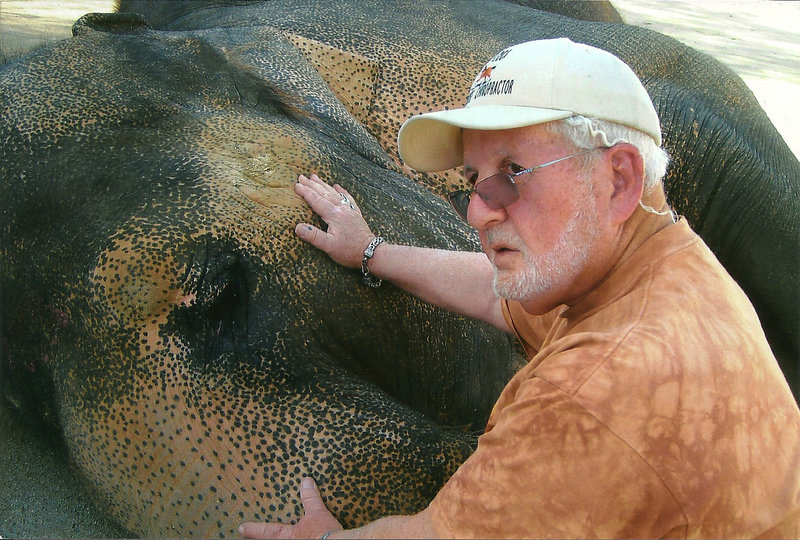LOS ANGELES – Thirty years ago, Dr. Gene Giggleman was a veterinarian who thought chiropractors were quacks. Since then, he says he’s straightened out thousands of dogs and cats, not to mention the occasional snake, hamster, gerbil and guinea pig.
“And I know people who have adjusted pigs, goats and rodeo bulls,” said Giggleman, a professor at Parker University in Dallas, which specializes in chiropractic care.
In Southern California, Dr. Rod Block has tended to an elephant, a paralyzed iguana, a turkey, pigs, llamas and countless dogs and horses.
“You have to be very much in tune with the being of the animal you are working with,” said Block, who limits his work these days to house calls throughout Southern California, where he works with several veterinarians.
The vets say any human or animal with a spine-related problem can benefit from a chiropractic adjustment, like the 38-year-old horse that is one of Block’s patients. “He’s not rideable, but he’s mobile. He’s off steroids and free to roam around and enjoy the remainder of his life relatively pain-free,” Block said.
The horse doesn’t get top billing in his new book though. “Like Chiropractic for Elephants” describes how he treated a gimpy elephant at a private sanctuary, how her herd accepted him and how she used body language to help him find her pain.
Through the book, Block said he hopes “to demystify chiropractic.” “I really want to illuminate the differences between what allopathic (mainstream) veterinary medical care does and what chiropractic does and how the two integrate well even though they are at opposite ends of the pole,” he said.
Unlike Giggleman, who started as a veterinarian, Block spent 30 years as a human chiropractor before he switched gears 20 years ago and became certified by the Bluejacket, Okla.-based American Veterinary Chiropractic Association, or AVCA.
Classes take about a year of extra study, Block said.
The AVCA has certified more than 1,000 veterinarians or chiropractors since 1989, said Leslie Means, the association’s executive director. The group has 560 active members, and they must regain certification every three years.
However, the certificates are not licenses to practice medicine. In states like Nevada and Oklahoma, getting a certificate is the only way you can set up shop. But states like California and Texas require those with certificates to work under the supervision of a veterinarian.
As a result, in many states, veterinarians and animal chiropractors work out of the same offices. They can make referrals to one another and even merge their telephone and online listings.
“Chiropractic care is a drugless, non-surgical approach to treating animals,” Giggleman said. And, he added, much cheaper than traditional medicine with its surgeries and drugs.
Giggleman spends most of his time teaching but still sees patients one day a week. Ninety percent of his patients need chiropractic care and 10 percent need traditional care, he said. “I’m not an extremist either way. I am for whatever fixes your dog,” he said.
When Giggleman started teaching a course on how to adjust animals over a decade ago, the bulk of his students were chiropractors. “Now, for the first time, we are seeing more veterinarians than chiropractors,” he said.
“There is no cure-all discipline,” he said. “Chiropractic is complimentary care. There are times when pets need surgery.” Animals often get more out of chiropractic care than humans, he said.
“Animals don’t lie. They are either better or not. They are very demonstrative with their adjustments. They don’t have all the mental trash we deal with on a daily basis.
Send questions/comments to the editors.



Success. Please wait for the page to reload. If the page does not reload within 5 seconds, please refresh the page.
Enter your email and password to access comments.
Hi, to comment on stories you must . This profile is in addition to your subscription and website login.
Already have a commenting profile? .
Invalid username/password.
Please check your email to confirm and complete your registration.
Only subscribers are eligible to post comments. Please subscribe or login first for digital access. Here’s why.
Use the form below to reset your password. When you've submitted your account email, we will send an email with a reset code.